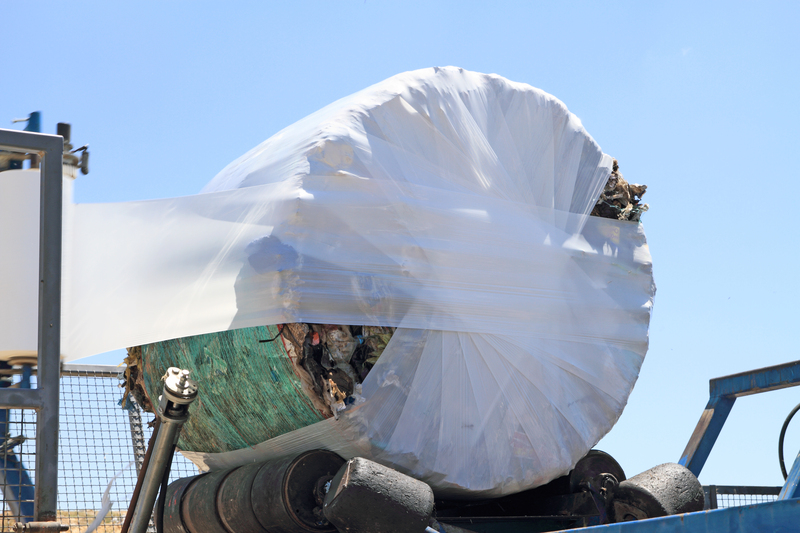Adopt Smarter Recycling Habits
As the world's environmental challenges continue to escalate, the importance of adopting smarter recycling habits has never been more paramount. By refining our recycling methods and embracing innovative strategies, we can significantly reduce our ecological footprint and contribute towards a more sustainable future.

Understanding Recycling
Recycling is the process of converting waste materials into new products, thus conserving raw materials, energy, and reducing the overall pollution. Despite its apparent simplicity, effective recycling requires knowledge and commitment to follow best practices.
The Importance of Smarter Recycling Habits
Adopting smarter recycling habits goes beyond simply segregating plastics, papers, and metals. It involves making informed choices throughout our daily lives, from the products we purchase to how we dispose of waste. By doing so, we not only reduce landfill waste but also support the recycling economy and promote environmental sustainability.
Effective Tips for Smarter Recycling
1. **Know Your Local Recycling Guidelines**:
Local recycling programs often have specific guidelines on what materials they accept. Get informed about what your community's program entails and adhere to these rules.
2. **Reduce Contamination**:
Contamination in the recycling stream can render an entire batch of recyclable materials useless. Ensure items are clean, dry, and free from food waste before recycling.
3. **Separate Correctly**:
Different materials must be sorted correctly. For instance, paper and cardboard should be separated from glass and metals. Use multiple bins if necessary to maintain proper separation.
4. **Stay Informed**:
Recycling technologies and rules are continually evolving. Keep abreast of new developments and adjust your habits accordingly to ensure efficient recycling.
5. **Minimize Plastic Usage**:
Plastics are a major concern in recycling due to their non-biodegradable nature. Reduce your plastic usage by opting for reusable alternatives and choosing products with minimal plastic packaging.
6. **Recycle E-Waste Properly**:
Electronic waste requires specialized disposal methods due to the hazardous materials they contain. Use designated e-waste facilities for recycling old electronics.
Benefits of Adopting Smarter Recycling Habits
1. **Environmental Preservation**:
Reducing landfill waste helps preserve natural habitats and decreases pollution. Recycling reduces the need for raw materials, thus conserving natural resources like timber, water, and minerals.
2. **Energy Conservation**:
Recycling often uses less energy than producing new products from raw materials. For example, recycling aluminum saves up to 95% of the energy required to create new aluminum.
3. **Economic Growth**:
The recycling industry generates jobs and stimulates economic growth. By supporting recycling programs, you can contribute to a thriving economy.
4. **Reduced Carbon Footprint**:
Recycling has a considerable impact on reducing greenhouse gas emissions, thus mitigating climate change effects.
Challenges of Recycling
1. **Contamination Issues**:
Contaminated recyclables can cause entire batches to be discarded. Common contaminants include food residues, non-recyclable plastics, and hazardous materials.
2. **Public Awareness**:
Lack of widespread understanding of proper recycling practices can undermine the effectiveness of recycling programs.
3. **Infrastructure Limitations**:
Not all areas have access to comprehensive recycling facilities. This can limit the scope of materials that can be effectively recycled.
4. **Economic Viability**:
Market fluctuations can affect the economic feasibility of recycling certain materials. This can lead to fewer items being recycled and more being sent to landfills.

Conclusion
Adopting smarter recycling habits is crucial in our collective effort to protect the environment and conserve resources. By understanding local guidelines, reducing contamination, and staying informed, you can significantly contribute to sustainability. Embracing these habits not only ensures a cleaner, greener future but also promotes economic and environmental well-being.
Key Takeaways
- Understand and follow local recycling guidelines.
- Reduce contamination by ensuring recyclables are clean and dry.
- Separate materials correctly to improve recycling efficiency.
- Stay informed about evolving recycling practices.
- Minimize plastic usage and recycle e-waste responsibly.
By integrating smarter recycling habits into your daily routine, you play an essential role in fostering a healthier planet. Remember, every small action contributes to a larger impact in our collective journey towards sustainability.
Pros:
- Environmental preservation
- Energy conservation
- Economic growth
- Reduced carbon footprint
Cons:
- Contamination issues
- Public awareness gaps
- Infrastructure limitations
- Economic viability concerns




